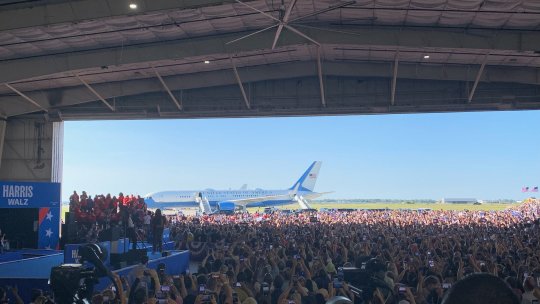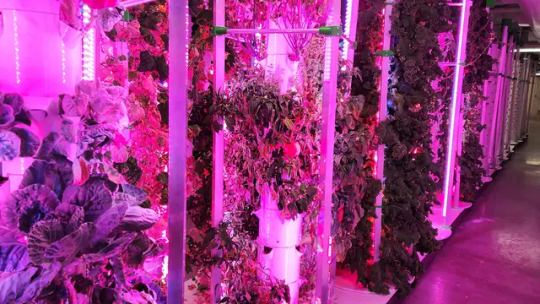#Artificial Lift
Explore tagged Tumblr posts
Text
The global Artificial Lift Market is projected to reach USD 9.0 billion in 2028 from USD 7.3 billion in 2023 at a CAGR of 4.4% according to a new report by MarketsandMarkets™. Artificial lift comprises techniques in the oil and gas sector to boost hydrocarbon production from wells with insufficient natural pressure. Employed when reservoir pressure is inadequate, methods like rod lift systems, electric submersible pumps, gas lift, and hydraulic pumping enhance flow rates. These mechanisms enable more efficient recovery, compensating for declining reservoir pressure and optimizing production in mature wells. The growing requirement to maximize the production potential of mature fields is one of the leading factors driving the growth of the artificial lift market, as the demand for oil and gas is constantly growing. Digitalization and automation to enable better analysis of good conditions present promising opportunities for the artificial lift market.
#oil rig#oil and gas#oil and gas companies#oil industry#oil#artificial life#energy#energia#Artificial lift#Artificial lift market#drilling tools#oil and gas drilling#offshore drilling#offshore oil and gas#oil and gas production#oil and gas industry#oil and gas pump#oil pump#oil pulling
0 notes
Text
The global Artificial Lift Market is projected to reach USD 9.0 billion in 2028 from USD 7.3 billion in 2023 at a CAGR of 4.4% according to a new report by MarketsandMarkets™.
#Artificial Lift#Artificial Lift Market#artificial lift systems market#energy#oil and gas#oil and gas industry#oil production#offshore oil and gas#oil and gas exploration#oil and gas companies#oil and gas drilling#oil and gas sector#oil and gas production#oil and gas equipment#oil and gas prices#oil and gas reserves#oil exploration#exploration#production#oil pump#oil prices#oil#gas#shale gas#shale oil#upstream#oilfield#oilfields#drilling rig#drilling rigs
0 notes
Text
girl who loves analyzing fighting styles and characters power levels vs mob psycho 100, an anime which doesn’t focus on the mechanics of its power system at all
#HOW AM I SUPPOSED TO ASSESS RELATIVE POWER DIFFERENCES UNDER THESE CONDITIONS#i understand and appreciate the narrative reasoning for not going into detail about psychic powers#(including things like in universe classifications)#and because of the pacing and purpose of the story you know the protagonists will win#but it’s like. what abt ‘natural’ espers#bc the awakening lab group are all ’naturals’ as in ‘not artificial espers’#but their powers (other than clairvoyance girl’s) are all significantly weak#which makes me think it’s a baseline- most espers (natural or artificial) likely have that power level- and so never discover any powers#there’s also the specialties to deal with- most espers we see are limited in the scope of their powers and only really do 1 or 2 things#which is a rule we see all the way up in claw’s super 5#main exceptions seem to be mob teru and serizawa (ritsu does NOT count here- we only really see him doing telekinesis and barriers afaik)#(and besides. ritsu doesn’t seem to be able to be strong enough to lift himself firmly cementing him as weakest non-reigen protag)#(also not counting toichiro here- it looks to me like he just has a LOT of raw power and a Lot of specialties)#sorry. my demons#mp100
17 notes
·
View notes
Note
First, I'm not quite sure if you saw the answer I gave to your question on Rot in Paradise, so I'm just checking here 👍
Anyway, out of the three Zero Escape games, which one was your favourite and least favourite and why? I think for me it was 999 as the best, then VLR and then ZTD. I like all the games, but the first one was the one where I enjoyed things the most (especially the art for that one).
I sawww many moons ago, my bad qwq
I have had the game dowloaded along with Eloquent Countenance and played Married in Red!! Pretty simple but good, it made me nostalgic for finding those short and sweet rpg maker horror games between replaying the longer more popular ones, I'm looking forward to playing the two whenever my brain allows me especially since I'm trying to get back into game making and so I feel like I need to pay extra attention to everything
Second question! I certainly have a soft spot for 999 above the others as well (parentified brother of the year is not on the other ones) it was very important to me, that kind of media that shows up in your life right when you need it when things are tough to give you an epiphany on how to get through it you know? but even revisiting the serries as a whole I'd have to say the visual presentation does have a lot to do with it too yeah... VLR is harder to think about for me because there's so so much blue and grey that just morphs together but I'd still say I like it better than ZTD because some moments in it just really rub me off the wrong way despite me remembering them all much better? I think a lot of the last fic I made was me making peace with the way canon concluded and forcing open some space for the characters to breathe and feel like they have humanity and internal logic again to my way of reading each of them at least
#I will forever be let down that the bracelet logic of the chromatic doors wasn't color coding characters like 999 did with enneagram numbers#and that they don't get codenames nor even last names a lot of the time#I loved the character writing of 999 but then vlr and ztd kind of don't prioritize that at all it's more about them timelines#there's still good there but you kind of have to dig for it instead of them all feeling like they fits together in the narrative beyond jus#the function they serve to further the main story thread#the character endings in vlr start feeling artificial after the third backstory confessional to sigma in a row and ztd characters#only get shallow backstory traits for the most part.... confession I am so sorry he's so funny but I can't like Carlos especially#this man clipped in from a different kind of game altogether please someone tell him what's going on 😭#also junpei mention akane being the first zero to her face pleease#please lift the spoiler ban it's the third game of the series#how did akane backstory update get only mentioned in one line and how did her and mira never interaaact *cutely kicks a pebble#thanks for the ask!
2 notes
·
View notes
Text
ohfhkshf i actually have to finish the franco essay now... and mbf + the body essay...
#well they aren't specific about being mbf oriented because that's how i am i don't like getting too strict and specific because it seems#artificial but yeah they are obviously about all of this. ugh. mbf episode then sleep though i can't get silly about this tonight#thank you dashhh thank youuu thank you thankk youuu a weight has been lifted off me.#letters from stephanie*
3 notes
·
View notes
Text


what if my Void and @doktorpeace's Erato had spiderverse counterparts....and they were both spidermen.......and they kissed.........
#spitblaze says things#wip#ocs#void#masks#uh. lol this is what i was saying before#might have to buff les's design out a bit#but i think les's backstory is 'bit by the spider at a young age and it just didnt do anything for a long time'#'until the Inciting Incident where he got sucked into a black hole from a faulty particle accelerator'#'and instead of getting all Spots about it the spider powers managed to save him'#cause in his NORMAL story hes got like. sort of a metahuman autoimmune disease?#he already had a latent metatrait in a healing factor but once that got mixed with the weirdness of the black hole stuff it just became#les's atoms tearing each other apart and pulling themselves back together constantly and it hurt SO BAD all the time#i could go on a rant. the point is that in this case whats keeping him together isnt a healing factor but the latent spider powers#does he even need the web if he can just fall at terminal velocity in any direction to 'fly'?#no but hes also a weeb nerd who couldnt lift his way out of a paper bag#so like. probably for the best for him to develop a bit of muscle mass#anyway erato (spidrato)'s deal is that they're an artificial spiderman#i mean. obviously. robot. but like specifically made by the Spiderverse HQ#for the purposes of. idk. subduing rogue spidermen or something#either way their project was scrapped until Viceroy reactivated them and gave them purpose#anyway thats all i really have for them so far lmao this is way too many tags
13 notes
·
View notes
Text

deng xiaoping's ghost is physically manifesting on my dash
#isn't that thing about lifting all those people out of poverty not even true? not in the 'it's a lie' sense#just in the 'barely passing the world bank's artificially lowered threshold' sense#i do have respect for much of what china's done but there's a reason it's generally not regarded as a socialist utopia lol
3 notes
·
View notes
Text
Artificial Lift Systems Market Growth: Trends Shaping the Future of Energy Extraction
0 notes
Text
the post-christmas shutdown is working real hard rn
#I feel like I can hardly move and I don’t want to talk to anyone or do anything and if it wasn’t only 8pm I’d go to bed lmao#eventually my neck will hurt so much I have to move. then I’ll get dessert. and I’ll be okay for a little longer#while I’m yapping I’ve gotta add that my cats are asleep next to me and literally hugging I wanna cryyyy#could do with an ibuprofen and some juice. I hope I still have juice. I don’t usually bother buying it but it feels festive lmao#actually! I know I have some! I bought fancy lemonade (that doesn’t have artificial sweetener :)) so that might be nice#maybe I can move ! I just feel so demanded-out. my mum needs a lift to the shop tomorow and I obvs said yes but I cba !!!!!!#I feel I need to burrow away somewhere warm and isolating to recover for a hot minute#p
0 notes
Text
Artificial Lift System Market Forecast and Future Growth Overview 2024 - 2032
The artificial lift system market is a critical component of the oil and gas industry, playing a vital role in enhancing the production of hydrocarbons from wells. As conventional oil reserves decline and the demand for energy rises, artificial lift systems have become increasingly important for optimizing production and improving efficiency. This article provides an in-depth analysis of the current state of the artificial lift system market, its key drivers, challenges, and future trends.

Introduction to Artificial Lift Systems
What Are Artificial Lift Systems?
Artificial lift systems are mechanisms used to increase the flow of liquids (such as oil and water) from a well when natural reservoir pressure is insufficient to bring the fluids to the surface. These systems are essential for maintaining production rates and extending the life of oil and gas wells.
Types of Artificial Lift Systems
Rod Pumping Systems (Sucker Rods):
Commonly used in onshore oil production, utilizing a series of rods connected to a surface pump.
Electric Submersible Pumps (ESPs):
Installed downhole, these pumps are highly efficient and suitable for various applications, especially in high-production wells.
Progressive Cavity Pumps (PCPs):
Ideal for viscous fluids, these pumps are known for their ability to handle multiphase flows.
Gas Lift Systems:
Utilize injected gas to reduce the density of the fluid column, enhancing flow to the surface.
Market Overview
Current Market Size and Growth
The global artificial lift system market has been experiencing steady growth, fueled by increasing oil and gas production activities and the need for enhanced recovery methods. Analysts project a compound annual growth rate (CAGR) of approximately 5-7% over the next five years, driven by both established and emerging markets.
Key Segments of the Market
By Type of Lift System
Rod Pumps: Widely used for their simplicity and effectiveness in onshore applications.
Electric Submersible Pumps: Gaining popularity in offshore and high-production environments.
Progressive Cavity Pumps: Used in applications requiring the handling of viscous fluids.
By Application
Oil Extraction: The primary application, particularly in mature fields requiring enhanced recovery techniques.
Gas Extraction: Increasingly utilized in gas wells to optimize production.
By Geography
North America: Dominates the market, driven by significant shale oil production and technological advancements.
Middle East and Africa: An essential region for artificial lift systems due to ongoing exploration and production efforts.
Asia-Pacific: Rapid growth anticipated due to increasing energy demands and investments in oil and gas infrastructure.
Market Drivers
Increasing Energy Demand
The rising global demand for energy, driven by industrial growth and population expansion, is a significant factor propelling the artificial lift system market. As countries strive to meet their energy needs, efficient production techniques become paramount.
Technological Advancements
Innovations in artificial lift technologies, such as smart monitoring systems and advanced materials, are enhancing the efficiency and reliability of these systems. These advancements are encouraging operators to adopt more sophisticated artificial lift solutions.
Enhanced Oil Recovery (EOR) Techniques
The growing focus on enhanced oil recovery techniques is driving demand for artificial lift systems. EOR methods often require specialized lifting technologies to optimize production from aging wells.
Challenges Facing the Market
High Initial Costs
The initial investment for installing artificial lift systems can be substantial. This upfront cost may deter some operators, especially in regions with limited budgets or in less productive fields.
Maintenance and Operational Challenges
Artificial lift systems require regular maintenance and monitoring to ensure optimal performance. This ongoing requirement can increase operational costs and may pose challenges for operators, particularly in remote locations.
Competition from Alternative Technologies
While artificial lift systems are widely used, there is increasing competition from alternative technologies, such as natural lift systems and emerging pumping solutions. These alternatives may offer different benefits that challenge the traditional market.
Future Outlook
Growing Adoption of Smart Technologies
The integration of smart technologies and IoT solutions in artificial lift systems is expected to enhance performance and monitoring capabilities. Real-time data analytics will allow operators to optimize production and reduce downtime.
Expansion in Emerging Markets
Emerging economies, particularly in Africa and Asia, are anticipated to witness significant growth in the artificial lift system market. Increasing investments in oil and gas infrastructure will drive demand for efficient lifting solutions.
Focus on Sustainability
As the oil and gas industry shifts towards more sustainable practices, the demand for energy-efficient and environmentally friendly artificial lift systems is expected to rise. Innovations that reduce energy consumption and minimize environmental impact will become increasingly important.
Conclusion
The artificial lift system market is poised for significant growth as the global demand for oil and gas continues to rise. With their critical role in enhancing production and optimizing resource extraction, artificial lift systems are becoming indispensable in the energy sector. While challenges related to initial costs and maintenance persist, the outlook remains positive. Stakeholders must leverage technological advancements and emerging opportunities to drive the adoption of artificial lift systems, contributing to a more efficient and sustainable energy.
More Trending Reports
Industrial Boilers Market
Fuel Management System Market
Managed Pressure Drilling Market
Air Handling Units Market
#Artificial Lift System Market Size#Artificial Lift System Market Trends#Artificial Lift System Market Analysis
0 notes
Text
Summer Reads: Week One–Klara and the Sun: Faith, Machines, and What Makes Us Human
Buckle up for Kazuo Ishiguro’s captivating novel, Klara and the Sun, a top-ten book on my MUST-read list. Set in a future filled with artificial companions and ethical dilemmas, this story challenges perspectives on faith, technology, and what it truly means to be human. Ishiguro paints a vivid picture that transports us to a dystopian future where children are genetically modified for enhanced…
#AF#AI#Artificial Friend#artificial intelligence#book#Challenges#Change#children#companionship#courage#decisive#Embrace Life#emotional support#Encouragement#Faith#faithful#genetic modification#Grace#growth#hope#human#imperfections#inner strength#intelligence#Kazuo Ishiguro#keeper#KLARA AND THE SUN#lessons#life#lifted
0 notes
Text
The global Artificial Lift Market is projected to reach USD 9.0 billion in 2028 from USD 7.3 billion in 2023 at a CAGR of 4.4% according to a new report by MarketsandMarkets™.
#Artificial lift#artificial lift systems market#Artificial lift market#oil and gas#oil production#oil pump#oil prices#oil#oil rig#oil and gas exploration#oil and gas industry#oil and gas companies#offshore oil and gas#energy#oil and gas drilling#oil and gas equipment#oil and gas production#oil and gas prices#oil exploration#exploration#production#drilling rig#drilling rigs#oil drilling#offshore drilling#oil and gas news
0 notes
Text
IoT in Artificial Lifts and Elevators Market Forecast-2030
IoT in Artificial Lifts and Elevators Market Forecast-2030
0 notes
Text



I think in this new age of A.I. the general public is going to need to increase their photography and lighting literacy. The response to this photo has just been a shit show.
There are people pointing out perfectly normal edge lighting and misunderstanding how reflections work.



First the plane is parked at an angle. The tail is farther back than the nose. But also that is a curved surface and it tapers. It's reflecting the area to the right of the photo.
And the bottom of the plane is reflecting what is directly underneath. Which is the tarmac, not the crowd.
It should also be noted that photo was shot with a very telephoto lens and everything is super compressed. The crowd appears much closer to the airplane than they actually are.
But then someone who should have good understanding of lighting said this...

And now I'm worried for her clients. Because that's very... wrong.
Well, wrong-ish.
First, let's try to understand why this photo is setting off some alarm bells.

The crowd toward the rear is in shadow, but they are still very well exposed. But then there is also a bright light source creating a strong edge light on them. Looking at this photo with just the context of what is in it, there are some things that seem uncanny.
The information we do not have is the people in the shadow area are inside a very brightly lit airplane hangar.

So they have artificial light blasting them from the top.
But that light is still much dimmer than the sunlit areas outside so they appear in shade. But we are used to shade being much darker than areas in direct sun. So the balance seems off in our brain. We expect the people to be darker because we don't have the context of the bright hangar lights above them.
But the other issue is that the photo was post processed. It wasn't manipulated. The pixels weren't changed. But the exposure balance was altered.
If I were to guess, the original photo looked more like this...

But newer digital cameras can have 13 to 15 stops of dynamic range. And if you shoot in RAW, you can easily lift shadows and bring down highlights. You can balance the exposure so the dark parts aren't as dark and the bright parts aren't as bright. This photographer might have overdone it a bit in this case, but this is a fairly standard edit used to bring balance to photos.
And lastly, where does the edge light come from?

Edge lighting or backlighting or rim lighting (all the same) should probably be called wrap-around lighting if you want to be more accurate.
It comes from a homogenous light source that is larger than the subject being lit. So with my knife photo, I placed it on a large LED panel light.

The light source was bigger than the subject so it wrapped around the edges.
And I'm afraid the airplane is not nearly large enough to create a light source to wrap around everyone in the crowd. It isn't even reflecting direct sunlight. So I'm sorry to say that lighting designer was mostly mistaken despite the confidence.
The light source is... everything.

That entire red area I highlighted is the light source.
As well as everything above and everything to the sides.
And the biggest aspect of that light source would be the sky above. I think people always forget the sky is a light source. If you are seeing blue, you are seeing light. And I guess the plane is included in that, but that entire highlighted red area is so bright, and so filled with sunlight bouncing around, that it creates basically a giant softbox. It becomes a huge single light source for the people in the hangar.
If you look at footage taken from way inside the hangar, you can see the camera adjusting exposure for the crowd inside, but look at what happens to the sunlit area outside.

What does that look like?
A giant softbox.
A single homogenous light source blasting light inside the hangar.
The sun is so incredibly bright that even when it is not directly lighting something, the light just bouncing around outside is enough to overpower the very bright hangar lights.
So, what have we learned from this?
Perhaps people should hire me to be their lighting designer.
Though I'm sure she is actually very talented. She seems to work with stage lights and this is more physics and photography.
Phystography.
4K notes
·
View notes
Text
"In some cities, as many as one in four office spaces are vacant. Some start-ups are giving them a second life – as indoor farms growing crops as varied as kale, cucumber and herbs.
Since its 1967 construction, Canada's "Calgary Tower", a 190m (623ft) concrete-and-steel observation tower in Calgary, Alberta, has been home to an observation deck, panoramic restaurants and souvenir shops. Last year, it welcomed a different kind of business: a fully functioning indoor farm.
Sprawling across 6,000sq m (65,000 sq ft), the farm, which produces dozens of crops including strawberries, kale and cucumber, is a striking example of the search for city-grown food. But it's hardly alone. From Japan to Singapore to Dubai, vertical indoor farms – where crops can be grown in climate-controlled environments with hydroponics, aquaponics or aeroponics techniques – have been popping up around the world.
While indoor farming had been on the rise for years, a watershed moment came during the Covid-19 pandemic, when disruptions to the food supply chain underscored the need for local solutions. In 2021, $6bn (£4.8bn) in vertical farming deals were registered globally – the peak year for vertical farming investment. As the global economy entered its post-pandemic phase, some high-profile startups like Fifth Season went out of business, and others including Planted Detroit and AeroFarms running into a period of financial difficulty. Some commentators questioned whether a "vertical farming bubble" had popped.
But a new, post-pandemic trend may give the sector a boost. In countries including Canada and Australia, landlords are struggling to fill vacant office spaces as companies embrace remote and hybrid work. In the US, the office vacancy rate is more than 20%.
"Vertical farms may prove to be a cost-effective way to fill in vacant office buildings," says Warren Seay, Jr, a real estate finance partner in the Washington DC offices of US law firm ArentFox Schiff, who authored an article on urban farm reconversions.

There are other reasons for the interest in urban farms, too. Though supply chains have largely recovered post-Covid-19, other global shocks, including climate change, geopolitical turmoil and farmers' strikes, mean that they continue to be vulnerable – driving more cities to look for local food production options...
Thanks to artificial light and controlled temperatures, offices are proving surprisingly good environments for indoor agriculture, spurring some companies to convert part of their facilities into small farms. Since 2022, Australia's start-up Greenspace has worked with clients like Deloitte and Commonwealth Bank to turn "dead zones", like the space between lifts and meeting rooms, into 2m (6ft) tall hydroponic cabinets growing leafy greens.
On top of being adaptable to indoor farm operations, vacant office buildings offer the advantage of proximity to final consumers.
In a former paper storage warehouse in Arlington, about a mile outside of Washington DC, Jacqueline Potter and the team at Area 2 Farms are growing over 180 organic varieties of lettuce, greens, root vegetables, herbs and micro-greens. By serving consumers 10 miles away or less, the company has driven down transport costs and associated greenhouse emissions.
This also frees the team up to grow other types of food that can be hard to find elsewhere – such as edible flower species like buzz buttons and nasturtium. "Most crops are now selected to be grown because of their ability to withstand a 1,500-mile journey," Potter says, referring to the average distance covered by crops in the US before reaching customers. "In our farm, we can select crops for other properties like their nutritional value or taste."
Overall, vertical farms have the potential to outperform regular farms on several environmental sustainability metrics like water usage, says Evan Fraser, professor of geography at the University of Guelph in Ontario, Canada and the director of the Arell Food Institute, a research centre on sustainable food production. Most indoor farms report using a tiny fraction of the water that outdoor farms use. Indoor farms also report greater output per square mile than regular farms.
Energy use, however, is the "Achilles heel" of this sector, says Fraser: vertical farms need a lot of electricity to run lighting and ventilation systems, smart sensors and automated harvesting technologies. But if energy is sourced from renewable sources, they can outperform regular farms on this metric too, he says.
Because of variations in operational setup, it is hard to make a general assessment of the environmental, social and economic sustainability of indoor farms, says Jiangxiao Qiu, a landscape ecologist at the University of Florida and author of a study on urban agriculture's role in sustainability. Still, he agrees with Fraser: in general, urban indoor farms have higher crop yield per square foot, greater water and nutrient-use efficiency, better resistance to pests and shorter distance to market. Downsides include high energy use due to lighting, ventilation and air conditioning.
They face other challenges, too. As Seay notes, zoning laws often do not allow for agricultural activity within urban areas (although some cities like Arlington, Virginia, and Cincinnati, Ohio, have recently updated zoning to allow indoor farms). And, for now, indoor farms have limited crop range. It is hard to produce staple crops like wheat, corn or rice indoors, says Fraser. Aside from leafy greens, most indoor facilities cannot yet produce other types of crops at scale.
But as long as the post-pandemic trends of remote work and corporate downsizing will last, indoor farms may keep popping up in cities around the world, Seay says.
"One thing cities dislike more than anything is unused spaces that don't drive economic growth," he says. "If indoor farm conversions in cities like Arlington prove successful, others may follow suit.""
-via BBC, January 27, 2025
1K notes
·
View notes